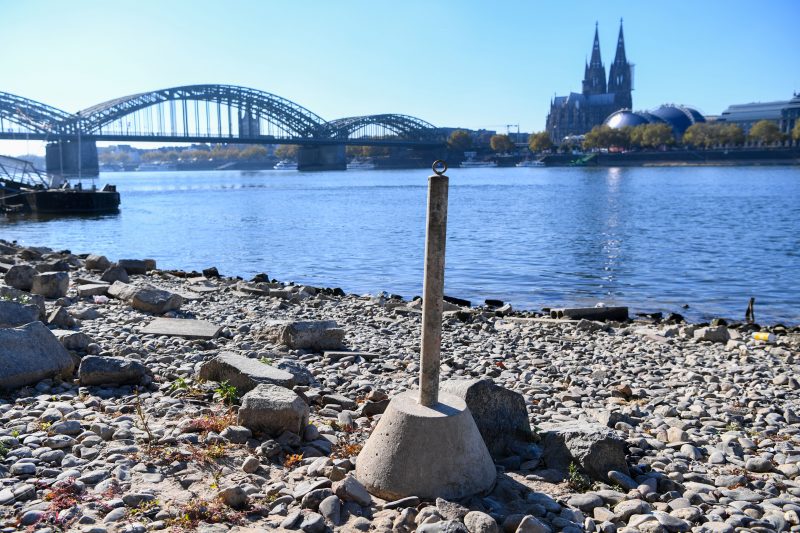German investor confidence inches up in February
Problems caused by record low water levels in the Rhine hurt the German economy last year (Patrik STOLLARZ)
Frankfurt am Main (AFP) – Confidence among German financial players picked up slightly in February, a regular survey showed Tuesday, but remained in negative territory as clouds hang over the global economy.
The ZEW institute’s economic expectations index for the coming months added 1.6 points to reach -13.4, its highest level since September last year.
But a separate ZEW index tracking present economic conditions in Germany tumbled 12.6 points, to 15.0.
“There have been disappointing developments in the business cycle especially in the industrial sector,” ZEW chief Achim Wambach said in a statement.
“Industrial production sank again, new orders are faltering and there are no new impulses from foreign trade,” Wambach said, adding that this pointed to “no expectation for a fast correction”.
Germany’s economy has been battered by several one-off blows in recent months, including low water slowing shipping in the Rhine river and new emissions tests proving a bottleneck for the crucial car industry.
But geopolitical storms have also lashed Europe’s powerhouse, as a US-China trade war and the threat of escalation in Washington’s transatlantic faceoff with Brussels stoked uncertainty.
Sources told AFP on Monday that a US Commerce Department report handed to President Donald Trump labelled European car imports a national security threat to America.
That finding could be used to justify new tariffs on autos from the Old Continent — prompting the European Commission to warn it would retaliate with border taxes of its own if Trump fired first.
In a further menace looming over trade, Britain remains on course to crash chaotically out of the European Union on March 29 as London flounders in its pursuit of a Brexit deal with Brussels.
The UK bought 82 billion euros ($92.7 billion) of German exports in 2018, making it the federal republic’s fifth-biggest customer, figures from statistics authority Destatis published Tuesday showed.
Meanwhile the island nation sold 37 billion euros of exports to Germany last year, making it the 11th-biggest import supplier.
Disclaimer: This story is published from a syndicated feed. Siliconeer does not assume any liability for the above story. Validity of the above story is for 7 Days from original date of publishing. Content copyright AFP.


